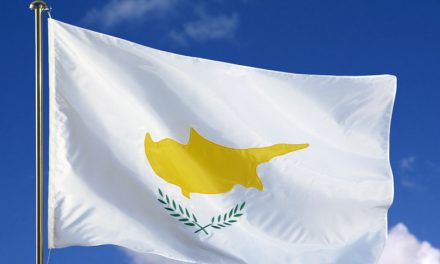By STEVEN ERLANGER and JAMES KANTER, New York Times
BRUSSELS — Greece and its European partners appeared on Monday night to be heading for a deal by the end of the week that would secure further funding for Greece and a likely promise of more debt relief in return for changes in the pension and tax systems, European Union officials said.
Even so, there is no great confidence that a deal reached when all 28 European Union leaders have a summit meeting here Thursday and Friday will be more than a short-term easing of the Greek crisis, which has preoccupied the European Union for the last five years. And there remains skepticism that the Greek government will follow through on whatever deal is finally struck.
One senior official from a European country, asked if this may be peace in our time, answered, “Well, it’s peace for a week.”
Given the past pattern of broken promises and sudden changes of position from the left-wing Greek government of Alexis Tsipras, even this outline of a modest deal could come apart once financial experts come to grips with the numbers.
After the summit meeting concluded, Jean-Claude Juncker, the president of the European Commission, said that he was “confident” a deal would be done by the end of the week, “for the simple reason that we have to find agreement this week.”
Monday was supposed to be a crucial day on Greece for eurozone finance ministers, followed by an emergency summit meeting of European leaders from the 19 countries using the euro, expected to go late into the night.
But in an apparent mix-up, Greek proposals sent to the finance ministers very early Monday were superseded by another proposal later that morning. Jeroen Dijsselbloem, the Dutch minister who is chairman of the group, said the delay deprived the finance ministers and experts of the time needed to judge the Greek proposals. And there was even brief consideration given to canceling the emergency leaders’ summit.
But Mr. Dijsselbloem said there was enough in the Greek proposals to provide some optimism that a real bargain might be in sight, and the leaders decided to meet anyway, even though they made clear that no major decisions would be made on Monday. But they wanted to try to make it clear to Mr. Tsipras that flexibility and patience are limited.
Mr. Tsipras has said that the toughest choices can be made only by political leaders, not finance ministers or technocrats, and there is continuing suspicion among many irritated European officials that his government has been playing for time. The idea would be to increase the pressure on his European colleagues to give Athens a better deal that Mr. Tsipras can sell at home as at least a partial victory.
“Frankly, it’s not a bad strategy,” a senior European Union official said.
Mr. Dijsselbloem said the Greek plan was “a basis to really restart the talks again and really get a result,” although officials needed to assess whether the economic reforms proposed by Greece “are enough for the economy to take off again.”
Donald Tusk, the president of the European Council, also signaled cautious optimism. “The latest Greek proposals are the first real proposals in many weeks, although they still need — it’s obvious for me — the assessment of the institutions and further work,” he told reporters.
“The most important thing is that the leaders take full political responsibility for the political process to avoid the worst-case scenario, which means uncontrollable, chaotic Graccident,” said Mr. Tusk, using a voguish term for unplanned events forcing Greece out of the eurozone.
Despite reassurances about the survival of the euro, the economic and political stakes for the European Union are high, and all would prefer to avoid both a Greek default and an exit from the common currency. Mr. Tsipras knows this, and analysts believe he has been stalling to try to get at least the promise of some relief for Greece’s probably unsustainable mountain of debt in a third bailout program.
The last part of the existing bailout expires at the end of June; a tranche of $8.2 billion has yet to be disbursed, which has led to worries that Greece would not be able to pay the $1.8 billion it owes to the International Monetary Fund by the end of the month.
According to the Greek economics minister, Giorgios Stathakis, speaking to the BBC, the Greek proposal would raise taxes on businesses and the wealthy, as well as hiking the value-added tax, or VAT, on some items. It reportedly would also raise the retirement age for state pensions gradually to 67, phasing out an early retirement system that allowed many Greeks to stop working in their early 50s.
Mr. Tsipras has argued that he needs to be able to show Greeks there is at least some light at the end of the austerity tunnel. By accepting a rise in the retirement age, he can say he has preserved existing pensions for most Greeks, kept pay stable for public workers and kept the VAT down on critical items like electricity and medicine.
Greece’s creditors have complained that pensions take some 16 percent of Greece’s gross domestic product and must be reduced, and the Greek proposal reportedly includes a higher employer contribution to pensions that some experts believe will be very difficult to collect.
One European Union official familiar with the Greek proposal said it would also have to pass muster in the turbulent atmosphere of Greek politics.
“Looking ahead, the real risks remain located in Greek domestic politics, where government’s movement on the issues of pension and VAT reform could be a tough sell — and would be an impossible one without any concessions on debt relief,” Wolfango Piccoli, a managing director at Teneo Intelligence, a political risk consultancy, wrote in a client note on Monday.
Mr. Piccoli, in a telephone interview later, said any offer by negotiators and creditors to give Greece a way to ease its debt repayments was highly unlikely until the Greek proposal had been fully assessed.
But if a deal takes longer, European policy makers and the European Central Bank will have to consider how to help Greece avoid imposing capital controls to curb the flight of deposits from its banking system in the event it misses the large repayment to the International Monetary Fund at the end of the month.
Already, Greeks have been taking billions of euros out of Greek banks, and so far the European Central Bank has been willing to replace the money in exchange for at least notional collateral, since the bank is forbidden from deficit funding. But if the outflow continues, capital controls might have to be imposed to avoid bank failure and a sudden Greek exit from the euro, since the supply will have stopped.
There are geopolitical concerns, too. Officials in both Washington and Berlin put the Greek crisis in the context of a more aggressive Russia, its annexation of Crimea and involvement in separatist regions of eastern Ukraine. Greece is a member of NATO, too, and Mr. Tsipras’s ties with the Russian president, Vladimir V. Putin, Russia’s hints of financial support for Greece and Russia’s interest in using Greece to pipe natural gas to Europe have not gone unnoticed.
And most European leaders fear the potential consequences of a Greek default: a failed state in the Balkans sending tens of thousands of desperate workers north into other European Union member nations and looking to Moscow for a lifeline.
But there is also a reluctance among countries that have achieved modest growth after undergoing serious austerity and structural changes to give Greece much of a pass.



















